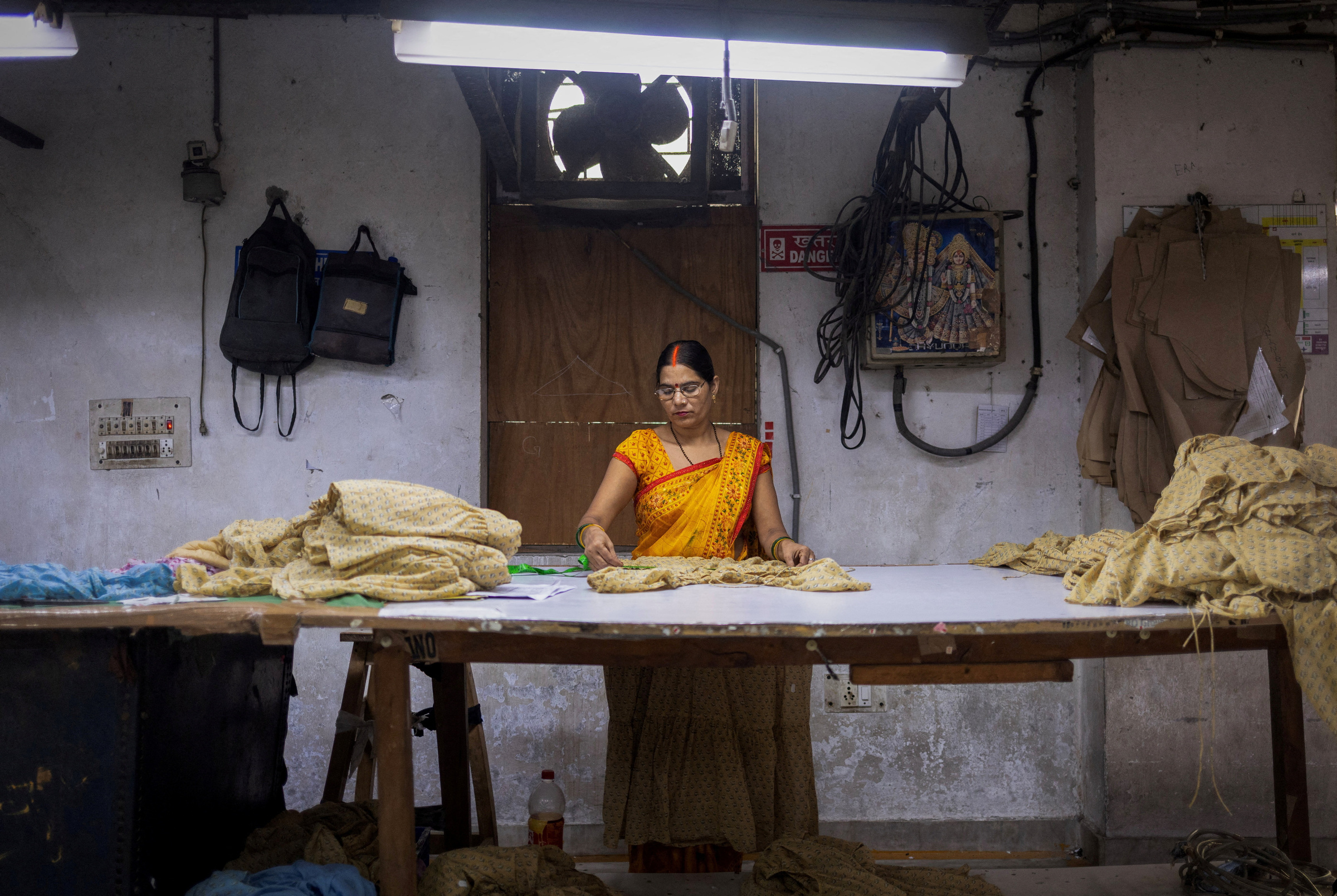On 3/9, India's Finance Minister Nirmala Sitharaman announced the government's approval of a reduction in goods and services tax (GST) to two rates: 5% and 18%, down from the previous four rates of 5%, 12%, 18% and 28%.
The policy will take effect on 22/9, coinciding with the start of the Sharad Navratri festival and ahead of Diwali, the festival of lights, in October.
Hundreds of consumer goods, from air conditioners to small cars, will be subject to the lower tax rates. Life and health insurance purchases will be exempt from GST. However, some products like luxury cars, tobacco and cigars will still be subject to a 40% excise tax.
 |
Workers measure fabric to prepare for dressmaking at a garment factory in Noida, India, on 7/8. Photo: Reuters |
Workers measure fabric to prepare for dressmaking at a garment factory in Noida, India, on 7/8. Photo: Reuters
The tax cuts are part of a broader plan by Prime Minister Narendra Modi to shield the Indian economy from the impact of US tariffs. "These comprehensive reforms will improve people's lives and ensure a favorable business environment for everyone, especially small traders and businesses," Modi posted on X.
India-US trade relations have expanded in recent years but remain vulnerable to disputes over market access and political pressure. Last month, Trump imposed an additional 25% tariff on Indian goods in response to India's continued purchase of Russian oil.
Currently, the world's fifth-largest economy is among those facing the highest tariffs imposed by Trump. As of 27/8, the total import tax on many Indian goods entering the US is 50%, estimated to affect about 48.2 billion USD in trade.
Officials warn that these tariffs could make exporting to the US commercially unviable, leading to job losses and slower growth. To mitigate the impact, the South Asian economy is working to expand exports to other markets such as Europe, Latin America, Africa, and Southeast Asia.
Trade talks with the European Union are becoming more urgent as India seeks to reduce its dependence on the US market. New Delhi is also discussing financial support measures such as preferential loan interest rates for exporters.
Phien An (according to AP)












